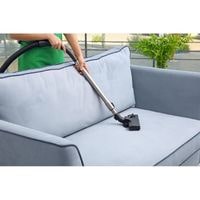How long do couches last. One of the most important decisions any individual can make when it comes down to furnishing their home is choosing a couch.
Wherever you put your seat will be with you for a while so choosing the best one can be risky, especially if the person isn’t informed or doesn’t consider all aspects that come with making such a big purchase.
Typically you get what you pay for but this isn’t always the case. There are a lot of things to take into account here like the texture, springs and springs, leather as well as whether or not there are extra features like cup holders or armrests.
It’s all about weighing out what is most important while keeping in mind what your budget will allow before taking action because although having an amazing piece of furniture may seem worth the price tag,
it might not feel that way later on when issues arise which might cost more than expected to rectify.
How long do couches last

How long do couches last. Consider replacing your couch before it stops being comfortable and supportive.
Most sofas last between 7 and 12 years but wear and tear differ depending on the person.
However, there are some warning signs that may indicate a replacement is needed before the arms fall off.
Creaking Noises start to occur
If you hear squeaking, popping, or creaking sounds coming from a couch, it can indicate structural damage.
This could be a problem with the joints on wooden or metal frames or the weakening of metal springs.
Even old couches were usually made with hardwoods and screws; today’s less expensive couches are put together with manufactured woods, staples, and epoxy.
Unless the couch is old or a cherished family heirloom, repairing its structural damage and replacing its upholstery can cost nearly as much as replacing the whole piece altogether.
The Couch doesn’t fit in the Room
People who live in a mobile society usually have that first couch purchase they made after college for a rented apartment, and now it looks lost in a large family room in their new home.
Or, they downsize and that big couch is crammed into a new smaller space blocking the views from the windows.
You can move your smaller couch to your bedroom or study but if you’re looking to replace a smaller couch then try not to place it in between other pieces of furniture or up against another surface each time someone sits on it regularly.
Doing so could cause excessive wear and tear on its upholstery as well as its frame. At which point we suggest replacing it with one that works better for the room size you’ve got available.
Overwhelming Odor
Unless you’ve been diligent about keeping pets, kids with leaky diapers, and sweaty bodies and feet off the couch, you can have a build-up of odors in the upholstery and the padding underneath.
Vacuuming regularly and having your couch steam cleaned occasionally are good ways to combat odors but eventually, they may win. If your room never smells fresh even after cleaning it may be time for a new couch.
A Flat Cushion and no Lumbar Support
If the carpet feels more comfortable to layout on than the couch after a nap is finished, it’s time to make a change.
If the cushions still feel sturdy yet saggy it might be possible with a bit of patience and upgrading know-how to get new life from the couch by just replacing some old padding.
Replacing seat cushions is also not uncommon since you can swap them out for timber board cut to the size that fits snugly in between the arms of your sofa and underneath the existing seat cushion filling.
A cheaper option instead of cutting timber board would be opting for 2 inches of solid foam (not memory foam).
Tips for Routine Maintenance

A routine schedule of care will keep your furniture in good condition, but don’t treat it with kid gloves.
Remove dirt and food particles once in a while with a vacuum cleaner; debris can rub the fabric and cause premature fraying.
Check the manufacturer’s guidelines for cleaning recommendations, as the type of fabric makes a big difference in what you can use.
To protect your couch from fading, use a slipcover or keep your couch out of direct sunlight.
The use of a stain treatment increases the longevity and beauty of your couch.
Although jumping on couches is something that every child dreams about (and often ends up doing anyway), try not to allow your kids to teach others this habit.
Related Guides
